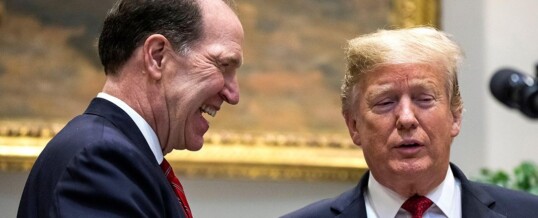
McLeod Group guest blog by Roy Culpeper, February 19, 2019
The sudden resignation in January of World Bank President Jim Yong Kim has reignited debate on the process of selecting his successor. To fill this position, US President Donald Trump has nominated Treasury Undersecretary for International Affairs David Malpass, whom some critics believe would use the position to undermine the Bank. For example, Justin Sandefur of the Washington-based Center for Global Development said that Malpass’s disdain for the Bank’s mission of fighting world poverty “rivals [US National Security Advisor] John Bolton’s [dis]respect for the United Nations”.
Others are more supportive of his nomination. Malpass’s recent congressional testimony suggests he is more intent on reforming the Bank than eradicating it. He advocates, among other things, making sure that the projects the Bank supports are financially sustainable, and ending lending to China, a capital-surplus country that hardly needs its financial support. Such opinions are not without merit.
The question is, however, not whether Malpass is a fit candidate for the job. Rather, it is the legitimacy and accountability of the process for filling this key position. In other words, is he the bestcandidate? Without a transparent selection process, involving a field of qualified candidates, it is impossible to know.
Unfortunately, the Bank and the International Monetary Fund (IMF) were created without much consideration for the selection process. The Bank’s Executive Board is formally mandated with appointing the President. There have been twelve incumbents since the Bank opened its doors in 1946, and every single one has been an American. The practice has been that US nominee always is appointed by the Executive Board.
This history is rooted, not in the Articles of Agreement – the World Bank’s charter – but rather in the power politics that have prevailed in the Bank and its sister institution, the IMF. Since their establishment 73 years ago, there has been a tacit quid pro quo among the leading industrial countries whereby the US selects the World Bank President – always an American national, usually with close ties to the White House – while the IMF Managing Director is always a European.
The Articles say little on the process of selection of its Chief Executive. The only stipulation is that the President “shall not be a governor or executive director or an alternate for either”.
Controversy over the selection process at the World Bank (and IMF) has grown over the last decade. After Paul Wolfowitz, who had been nominated by George W. Bush, resigned in 2007 over a controversy involving the compensation of his partner (a salaried staff member of the Bank), the Executive Directors established a working group to recommend a more open and accountable process to select the Bank’s president.
The selection process detailed in the working group’s report is quite comprehensive, laying out qualification criteria, and a process for nomination, shortlisting candidates and interviews by the Board. As a result, when Robert Zoellick retired as Bank President in June 2012, two highly qualified candidates emerged from developing countries, Ngozi Okonjo Iweala, a former Nigerian Finance Minister, and José Antonio Ocampo, a former Finance Minister from Colombia.
However, after President Obama nominated Jim Yong Kim as the US candidate (although he was born in South Korea) in 2012, it became evident that the political quid pro quo between the Americans and the Europeans would prevail (the US had backed the Europeans’ nomination in 2011 of Christine Lagarde as Managing Director of the IMF). Nonetheless, the World Bank Board has established a transparent and merit-based selection process that could confer legitimacy on the choice of the next appointee. It should surely be implemented.
In the past, Canada has been a strong advocate of choosing the heads of the World Bank and the IMF on the basis of merit, which could well result in the selection of highly qualified Canadian candidates. Former Prime Minister Paul Martin, when in office and since retiring from politics, has consistently advocated an open selection process. He has emphasized seeking the best possible candidate, based on merit, not on nationality, and free of the exorbitant privilege given to American and European candidates. Martin’s position was not motivated by favouring the placement of Canadians to head these organizations, but by the need for strengthening the ties underlying truly multilateral cooperation.
Will the current Liberal government hew to this principled approach of its predecessors to appointing the heads of the World Bank (and IMF)? That would be surprising, given the lengths to which it has gone to avoid irritating the Trump Administration. However, this may be an opportunity, while seeking support for a UN Security Council seat in 2020, for Canada to demonstrate solidarity with other countries that also feel left out of the current lopsided design of global governance.
Roy Culpeper is Senior Fellow, School of International Development and Global Studies, University of Ottawa, Adjunct Professor, Norman Paterson School of International Affairs, and Chair, Group of 78. Photo: EFE.
